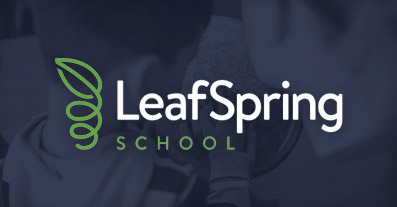Choosing Growth: A Look into LeafSpring Schools’ INSPIRED Leadership Program
Read ArticleJuly 12, 2018
Embryology Project
How does LeafSpring School at Wyndham teach the life cycle? We have an embryology project, of course! What is embryology? It is the study of embryos and their development. How do we study embryology? We study the life cycle of an egg. Our preschool classes were able to join the PreK classes this year with this exciting project!
How does this project work? We have a contact at 4-H who provides us with the incubators, eggs and everything we need for the chicks and ducks once they have hatched. Once the incubator is set up with the eggs, it takes 21 days for the chicks to hatch and 28 days for the ducks. We are able to watch the chicks develop in their eggs by “candling” the egg. We hold a flashlight, not a real candle, on the egg and move around the flashlight. We can see the embryo develop veins, head, body and legs. It is very exciting to watch this development. Not all of the eggs will turn into chicks; some eggs will just be like the ones that we would eat.
Around the 21st day of incubating, we start to see small holes or cracks appear in the eggs. The chicks are ready to come out of their shells. It could take up to a day or more for the chicks to peck their way out. It’s very exhausting work! They have to take rests from trying to break through the shell. Even once they hatch, they are very tired and wet. They take the next several hours to rest, build their strength and dry off. When they are completely dry, they are moved to the brooder, which is their home while at school. One of the Purple Room students was chanting to the chick as we watched it hatch. She kept saying, “Come on, chick! You got this, chick!” The whole group then erupted in cheers after the chick finally popped free.
-April Mills





